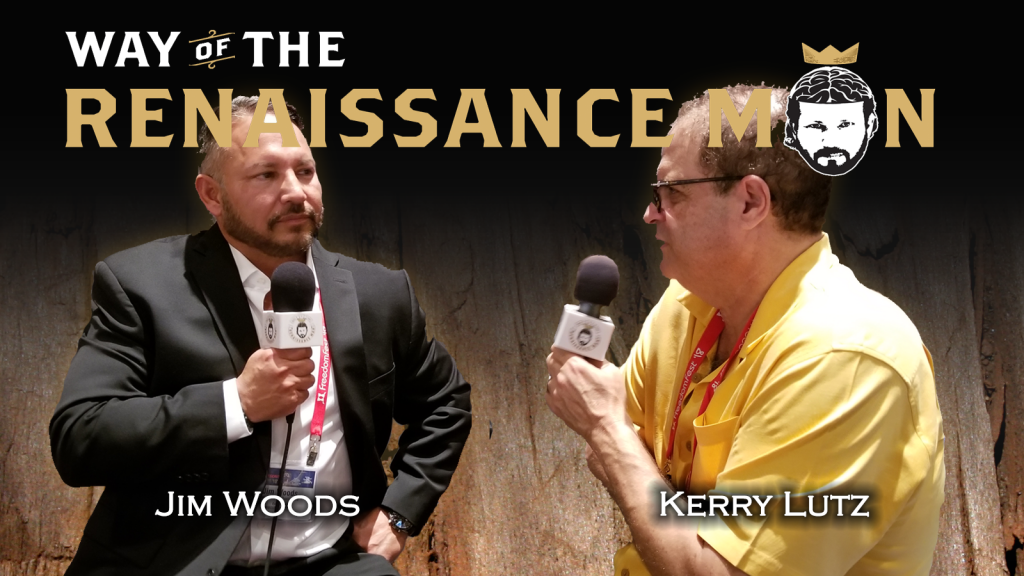“It’s in responsibility that most people find the meaning that sustains them through life. It’s not in happiness. It’s not in impulsive pleasure.”
— Dr. Jordan B. Peterson
Responsibility is a heavy burden.
But for those who assume the responsibility that comes with life and overcoming its inevitable hardships, the mere admission of said responsibility can actually be a reward in itself. That’s one of the themes that runs through the work of clinical psychologist and best-selling author Dr. Jordan B. Peterson. The way Peterson sees it, if you think the meaning of life is achieving happiness, what happens when you’re unhappy?
“Happiness is a great side effect. When it comes, accept it gratefully. But it’s fleeting and unpredictable. It’s not something to aim at – because it’s not an aim,” writes Peterson. The doctor goes on to add, “If happiness is the purpose of life, what happens when you’re unhappy? Then you’re a failure. And perhaps a suicidal failure. Happiness is like cotton candy. It’s just not going to do the job.”
Instead of pursuing happiness, Peterson suggests pursuing that which is truly meaningful, and it is through this pursuit that you’ll be faced with the responsibility of acting in a manner that makes life meaningful.
Now, I’ve been contemplating these ideas of late, having recently read Peterson’s best-seller, “12 Rules for Life: An Antidote to Chaos.” And, because of my responsibility as the editor of this publication along with my other newsletter advisory services, I tend to see things through market-colored glasses. Through those lenses, I also see this market as a way to aim for meaning over happiness. Let me explain.
The equivalent of pursuing happiness in markets is to make the big score with a big trade, and to ride the hot momentum stocks all the way up. And, when things are going well in a bull market, those big wins tend to bring a lot of happiness.
Yet what happens when things don’t go well? What happens when your momentum trade crumbles and falls below your stop loss? Well, that tends to be the opposite of happiness. In fact, it tends to be the definition of actual pain and loss.
And, based on the market action over the past several weeks, now is a time when a lot of unhappiness is wafting on Wall Street.
Now, I’m not saying that there isn’t a place for momentum investing or quick-hit trading. In fact, I think it can play a big, positive role in your overall returns. This is especially true of you’re the type who likes to put money to work in pursuit of short- and medium-term alpha.
Yet, what’s always important to remember is that what’s really meaningful when it comes to investing is to build wealth the responsible way. To that end, you must do so with a strategy that’s focused on the long term, and one that allows you to better deal with the inevitable ebbs and flows of market volatility.
And just to remind you of that volatility in markets of late, take a look at the six-month chart of the S&P 500 Index.

Image courtesy of StockCharts.com
As you can see, in mid-October we fell below key support at the 50-day and the 200-day moving averages. Since then, we’ve bounced back above the 200-day moving average several times. Yet the latest decline in stocks over the past couple of sessions has pushed the broad measure of domestic equities well below the long-term moving average.
So, what do you do now if your goal is to pursue meaning (i.e. long-term wealth building)?
Well, that answer depends on the type of investor you are. If you are a long-term investor who has built a portfolio of stalwart dividend stocks over the years, then the recent pullback shouldn’t bother you very much.
If you’re an investor who follows the trends, then you should have had a plan in place that moved much of your allocation to the safety of cash as soon as stocks initially fell below that key 200-day average.
Readers of my Intelligence Report advisory service have been building positions in stalwart, dividend-paying stocks for years, so this little hiccup is no more than a bump in the road on their pursuit of investing meaning.
Meanwhile, readers of my Successful Investing advisory service have been a bit more proactive of late, using that key technical break of the 200-day moving average to lighten up on equity positions and ride the volatility out in the safety of a high cash position.
Both of these approaches are based on pursuing meaning with your money, and both are designed to preserve and grow capital. And though each approach comes at the goal from different angles, the bottom line of pursuing long-term financial meaning is the same.
As the Buddhist adage goes, “there are many paths to enlightenment,” and so too are there many paths to financial meaningfulness.
But first, one must aim for meaning over happiness.
**************************************************************
On the Virtue of Stupidity: A Discussion with Financial Survival Network’s Kerry Lutz
Part of becoming a Renaissance Man requires having a healthy dose of skepticism.
At this year’s FreedomFest convention, I spoke with the Kerry Lutz, creator of the Financial Survival Network, to discuss a number of topics including the value of skepticism, as well as the “virtue of stupidity.”
Kerry is one of the funniest guys I know, but behind the humor there’s a whole lot of intelligent thought and observations about the world.

In the latest episode of the Way of the Renaissance Man podcast, we discuss:
- Why Kerry believes stupidity has become an exalted state of being.
- What Yossarian, the protagonist from Joseph Heller’s masterpiece, “Catch-22,” has to do with shaping Kerry’s political views.
- Why Jim feels that book was so influential in American history.
- What Kerry means when he says, “It’s important to not let the father of the wish be the father of the thought,” and the lesson he learned from that.
- What Jim identifies as one of the biggest challenges in today’s “fake news” era and what we must do specifically to overcome that challenge.
- And much more…
If you want to hear an interesting exchange of ideas laced with humor, irony and some unconventional insights, I think you’ll really enjoy my discussion with Kerry.
Finally, if you like the Way of the Renaissance Man podcast, I encourage you to subscribe to the show on iTunes.
Doing so is free, and it will ensure you never miss the latest episodes.
*******************************************************************
Shooting Yourself in the Foot with a Fake Arrow
It is not often you see a politically savvy, likely presidential candidate shoot herself in the proverbial foot. Yet that’s exactly what Sen. Elizabeth Warren (D-Mass.) did this week, and you might say she did so with a fake Indian arrow.
Sen. Warren, who is widely seen as one of the front-runners for the 2020 Democratic nomination for president, has long said she is of Native American descent. In fact, Warren has proudly touted that claim on many occasions, including via family lore about her Cherokee ancestry.
She has told the tale of some Indian bigotry against her mother for her Cherokee blood. Warren has said that her father’s parents did not want him to marry someone (her mother) who was part Cherokee.
In her professional life, Sen. Warren has embraced the lore of her heritage by changing her listed ethnicity from white to Native American while teaching at the University of Pennsylvania Law School from 1987 to 1995. Warren was listed as Native American at Harvard University Law School, where she has taught since 1995. In fact, Harvard Law School even described Warren as the “first woman of color” on its faculty.
So, what’s wrong with being proud of your heritage and embracing your ancestry?
Nothing, as long as that ancestry is, in fact, true. But in the case of Sen. Warren, the Native American and Cherokee Indian narrative appears to be as fictitious as a James Fenimore Cooper novel.
Now, why do I think this narrative is likely fiction? Because the truth can be found in Sen. Warren’s own DNA.

Senator Elizabeth Warren speaks at a rally.
Ironically, Sen. Warren set out to prove via a DNA test that she does, in fact, have Native American blood coursing through her veins. Sen. Warren even released a video on her website revealing the results, along with expert analysis, concluding that there was “strong evidence” that she is of American Indian ancestry.
But what did that evidence really show?
Well, it showed that Ms. Warren is, in fact, part American Indian. What part? According to the evidence, it’s somewhere between 1/64th and 1/1,024th Native American. That’s about 0.09% Native American, which experts say is roughly about half the rate of the average American.
That’s not much Native American blood. Moreover, it’s certainly not the kind of unequivocal ethnic heritage one would expect to be able to check the “Native American” box on any ethnicity documents. I mean, I have a hard time checking the “Hispanic” box on the U.S. Census given that I’m “only” 50% Latino.
As for Warren’s Cherokee ties, here the senator suffered a stinging rebuke from the tribe itself. Check out the blistering statement from Cherokee Nation Secretary of State Chuck Hoskin Jr. about this issue:
“Sovereign tribal nations set their own legal requirements for citizenship, and while DNA tests can be used to determine lineage, such as paternity to an individual, it is not evidence for tribal affiliation. Using a DNA test to lay claim to any connection to the Cherokee Nation or any tribal nation, even vaguely, is inappropriate and wrong. It makes a mockery out of DNA tests and its legitimate uses while also dishonoring legitimate tribal governments and their citizens, whose ancestors are well documented and whose heritage is proven. Senator Warren is undermining tribal interests with her continued claims of tribal heritage.”
Ouch!
Of course, the deeper issue here is why Sen. Warren is so intent on proving her Native American status?
The most obvious answer is her spat with President Trump, who has pejoratively referred to her as “Pocahontas” while also questioning her lineage claims. Most certainly, Warren is seeking to refute the president on this front.
Yet what’s more important here is that in 21st-century America, the more victimhood you can claim, the better your chances of success at the voting booth.
For Warren, who grew up of modest means, quit college to get married, had a daughter and later went back to finish college and law school, that narrative isn’t enough for the victimhood crowd. Hard work and achievement don’t really carry all that much weight with some in the Democratic Party. Instead, Warren needs to be part of a bigger victim group in order to have that downtrodden swagger, and what better group to be associated with than the original (and legitimate) victims of American racism — Native Americans?
Unfortunately for the senator, the race toward victimhood seems likely to backfire. And, that’s a good thing, in my view, because if you look at the types of extreme leftist policies a President Warren would bring to the country, well, we’d all quickly become victims of bad ideas.
*********************************************************************
Socratic Impermanence
“Remember, no human condition is ever permanent. Then you will not be overjoyed in good fortune nor too scornful in misfortune.”
— Socrates
This week’s quote was sent to me by reader Rick S., who also shared some interesting thoughts on the interplay between emotion and logic when it comes to decision making. Those thoughts intersect nicely with the quote here from Socrates that Rick sent. As you likely know, life brings all of us tremendous highs and very deep lows. Those who get too emotionally attached to either extreme are the ones setting themselves up for a high degree of disappointment. If we understand that these emotional peaks and valleys are impermanent, we will be better able to enjoy the pursuit of meaning that a rational life requires.
Wisdom about money, investing and life can be found anywhere. If you have a good quote you’d like me to share with your fellow readers, send it to me, along with any comments, questions and suggestions you have about my newsletters, seminars or anything else. Click here to ask Jim.




![[instant messaging via tablets and phones]](https://www.stockinvestor.com/wp-content/uploads/shutterstock_125411345.jpg)